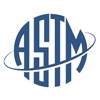What is a supplementary requirement in an ASTM grade?
 Supplementary requirements are optional requirements within ASTM specifications that must be requested at the time of quotation or purchase to be included, otherwise the manufacturing company is not required to adhere to the supplementary requirements. ASTM specifications have varying amounts of supplementary requirements. Some specifications have as many as six or more supplementary requirements, while some specifications have none. The most common supplementary requirements being permanent marking or stamping indicating the grade of the fastener or manufacturing company, but can range from adding color to the wax lubricant on a nut, to specifying the weldability of material, hardness testing, coating requirements, heat lot control, and even the thread length of the fastener itself.
Supplementary requirements are optional requirements within ASTM specifications that must be requested at the time of quotation or purchase to be included, otherwise the manufacturing company is not required to adhere to the supplementary requirements. ASTM specifications have varying amounts of supplementary requirements. Some specifications have as many as six or more supplementary requirements, while some specifications have none. The most common supplementary requirements being permanent marking or stamping indicating the grade of the fastener or manufacturing company, but can range from adding color to the wax lubricant on a nut, to specifying the weldability of material, hardness testing, coating requirements, heat lot control, and even the thread length of the fastener itself.
Supplementary requirements are indicated by their section within the specification itself. The supplementary requirement section is always at the very end of each ASTM specification and are listed as S1, S2, S3, etc. For instance, in the anchor bolt specific specification ASTM F1554 it is common to have Grade 55 anchor bolts to be specified to have supplementary requirement S1, which requires the material to be weldable. This S1 designation, or any other supplementary requirement, may appear in the specifications section of the plan drawings or may appear in the individual item description of the anchor bolt or fastener. Portland Bolt procures F1554 Grade 36 and Grade 55 material that is always weldable. In this instance, informing Portland Bolt of the S1 requirement is more of a formality since our material is going to meet the requirement without any added costs or testing, but this very well could not be the case for another bolt supplier who could use material that cannot be welded to.
Another common supplementary requirement is the low temperature performance test known as Charpy Impact testing. ASTM A193, A194, A320, and F1554 all have supplementary requirements for differing levels of Charpy Impact testing, which tests the amount of energy absorbed at differing temperatures and the ductility/brittleness of the material. Essentially this is a test used to evaluate the heat of steel or final product’s ductility or brittleness and is especially important for low temperature applications. Depending of the ASTM specification and the grade of the fastener, Portland Bolt could stock the material already tested, but in many instances could potentially have to custom manufacture, heat treat, and test a batch of bolts to conform to the supplementary requirement.
Passing the supplement requirement information onto your supplier can greatly affect the type of material being used to meet your requirement or the route the manufacturing company choses to manufacture the parts. Thus, this information can be of critical importance not only for correctly supplying proper materials to a jobsite, but also for accurate quotations for bids that capture the correct costs and lead times associated with manufacturing the item.

